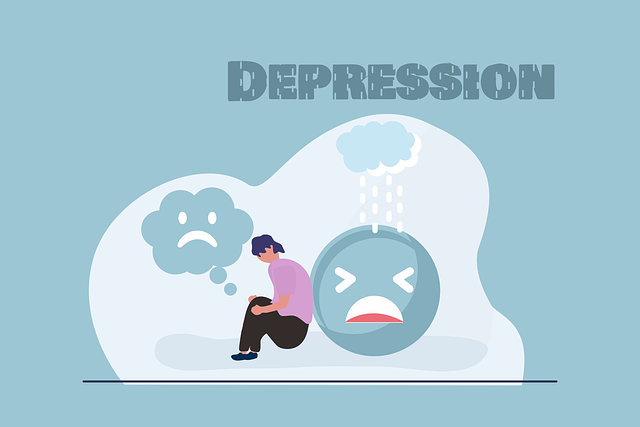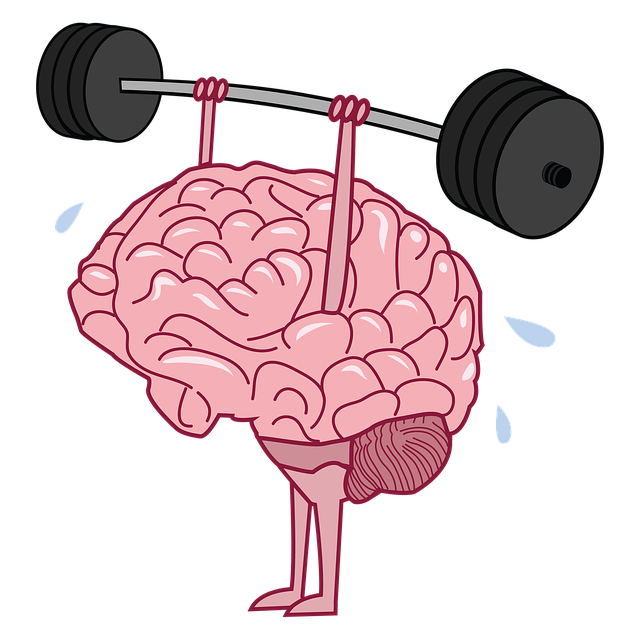Burnout among healthcare providers in Colorado Springs Geriatrics Therapy is a pressing issue, driven by intense demands and complex patient needs. To combat this, innovative programs like Community Outreach and Mental Wellness Podcasts aim to enhance support systems and mental health discussions. Early recognition of burnout risk factors, such as high workload and decreased job satisfaction, is crucial. Proactive strategies include mindfulness techniques and structured risk assessment tools, fostering a culture that prioritizes mental wellness through peer support and organizational shifts. Open communication, stress management resources, and work-life balance policies further reduce burnout risks, benefiting both healthcare providers and patients in Colorado Springs Geriatrics Therapy programs.
In Colorado Springs, geriatrics therapy plays a vital role in caring for an aging population, yet healthcare provider burnout remains a pressing issue. This article delves into understanding and preventing burnout among therapists in this region. We explore risk factors and early warning signs specific to geriatric care, emphasizing the importance of identifying them promptly. Effective prevention strategies are presented, focusing on individual well-being and fostering a supportive work environment within Colorado Springs Geriatrics Therapy practices.
- Understanding Burnout Among Healthcare Providers in Colorado Springs Geriatrics Therapy
- Identifying Risk Factors and Early Warning Signs
- Implementing Effective Prevention Strategies
- Fostering a Supportive Work Environment
Understanding Burnout Among Healthcare Providers in Colorado Springs Geriatrics Therapy

In Colorado Springs Geriatrics Therapy, burnout among healthcare providers is a growing concern. This issue manifests as a chronic state of emotional exhaustion, depersonalization, and reduced personal accomplishment, particularly in settings like geriatric care where intense physical and emotional demands are consistent. The unique challenges faced by these providers include managing the complex health needs of elderly patients while navigating potential family dynamics and cultural differences.
To address burnout prevention strategies for healthcare providers in Colorado Springs Geriatrics Therapy, innovative initiatives such as a Community Outreach Program Implementation and Mental Wellness Podcast Series Production have shown promise. These programs aim to enhance support systems, provide educational resources, and foster open discussions on mental health. By incorporating these burnout prevention strategies, the therapy center seeks to promote work-life balance, boost morale, and ultimately ensure the well-being of its dedicated staff who are integral to delivering quality care in a demanding geriatric setting.
Identifying Risk Factors and Early Warning Signs

In the pursuit of optimal patient care, understanding and addressing healthcare provider burnout is paramount, especially within specialized fields like Colorado Springs Geriatrics Therapy. Identifying risk factors and early warning signs is a critical first step. High workload, long working hours, and heavy administrative burdens are well-documented contributors to burnout among geriatric specialists. These pressures can be exacerbated by the emotional demands of caring for elderly patients with complex needs.
Recognizing the subtle cues of burnout early on is essential. Professionals in Colorado Springs Geriatrics Therapy may exhibit decreased job satisfaction, increased cynicism towards patients or colleagues, and a growing sense of detachment from their work. Changes in mood, sleep disturbances, and physical health issues could also signal underlying stress. Implementing effective stress reduction methods, such as mindfulness practices or compassion cultivation techniques, can help mitigate these risks and foster a more positive work environment for geriatric therapists.
Implementing Effective Prevention Strategies

Implementing effective prevention strategies is a proactive approach to combat burnout among healthcare providers, especially in settings like Colorado Springs Geriatrics Therapy where demands are high and patient needs complex. Organizations should foster an environment that prioritizes mental wellness by offering regular support programs such as peer-led discussions or Mental Wellness Podcast Series Production. These initiatives provide platforms for professionals to share experiences, offer mutual aid, and gain insights into managing stress effectively.
Furthermore, integrating structured risk assessment tools (like those used in Mental Health Policy Analysis and Advocacy) can help identify at-risk individuals early on. This enables targeted interventions, whether through adjusted workload distribution or specialized counseling services. A comprehensive approach that combines organizational culture shifts towards mental health awareness with individualized support mechanisms is key to preventing burnout and maintaining the well-being of healthcare professionals.
Fostering a Supportive Work Environment

In fostering a supportive work environment, healthcare providers, especially those engaged in Colorado Springs Geriatrics Therapy, can significantly mitigate burnout risks. This involves creating a culture that prioritizes open communication and mutual respect among colleagues, fostering collaboration rather than competition. Organizations should also offer resources for stress management, such as on-site mental wellness coaching programs development and guidance on coping skills development through journaling exercises. These initiatives not only enhance job satisfaction but also improve patient care by ensuring professionals remain emotionally invested and mentally resilient.
Additionally, implementing policies that promote work-life balance is essential. This includes flexible schedules, reasonable caseloads, and clear boundaries between personal and professional time. Mental wellness journaling exercise guidance can be integrated into these practices, encouraging professionals to reflect on their experiences and process emotions in a safe and private manner. Such strategies collectively contribute to a healthier, more engaged workforce, ultimately benefiting both the healthcare providers and the patients they serve, including those enrolled in Colorado Springs Geriatrics Therapy programs.
In conclusion, addressing healthcare provider burnout is paramount for the well-being of medical professionals and the quality of care in Colorado Springs Geriatrics Therapy. By understanding the unique challenges faced by these providers, identifying risk factors early on, and implementing targeted prevention strategies, we can create a more supportive work environment. Fostering open communication, promoting work-life balance, and encouraging resilience are key to mitigating burnout. Through these efforts, healthcare providers in Colorado Springs Geriatrics Therapy can sustain their passion and dedication, ultimately benefiting the patients they serve.














